
Muse & Mastery
Hosted by Aliya Cheyanne, Muse & Mastery is a digital sanctuary for creative thinkers, makers, and seekers. Each episode explores how we can live, create, and evolve in alignment with our purpose.
Muse & Mastery
Vulnerability, Discipline, and Transformation Through Dance with Ren | Ep. 57
On this episode, we pull back the curtain with Ren, host of the Dissecting Dance: Kickin it with Ren podcast to uncover the complexities of the dance world. Dance isn't just about movement; it's an emotional outlet that fosters healing and transformation. Through personal anecdotes, we explore how dance allows for the release and processing of negative emotions, offering cathartic experiences that lead to personal growth. Ren shares the invaluable impact of a positive environment and influential mentors, highlighting how supportive spaces and meaningful choreography can profoundly influence a dancer's journey.
More from Ren:
- Listen to Dissecting Dance: Kickin it with Ren wherever you get your podcasts!
- Tune in to my guest appearance on Dissecting Dance - How Achievable is Perfection? with Aliya Cheyanne
- Follow @dissectingdance on IG!
Theme Music:
She No Dull Beat by Nana Kwabena
Festivities in Belize by RAGE Productions
Enjoy the episode?
- Share it with friends!
- Send a voice note or text!
- Rate & review the podcast!
Follow @museandmasterypod on your favorite SM platforms!
Watch full interviews here on YouTube!
Join me over on Substack!
Check out my favorite brands and snag a discount!
Grab a guided journal here!
Are you a creative, solopreneur or entrepreneur who’d like to be featured on Muse & Mastery? Let me know here!
Hosted by Buzzsprout. See the Buzzsprout - Privacy Policy here.
Hi everyone, welcome back to the show. I'm your host, aaliyah Cheyenne, and I'm so excited today because this is my first ever podcast collaboration and I am speaking with Wren, who is the host of Dissecting Dance Kicking it With Wren podcast, and we are talking all things dance and creativity and so much more. Wren is the host of Dissecting Dance Kicking it With Wren Podcast, which is a podcast that focuses on broad and specific topics in the dance world. They were a dance student up until they graduated and now they are currently using the platform to discuss some of the toxic points in dance dance in the media and more. Ren has been dancing since they were three majored in dance in college and they have trained in ballet, jazz, modern and tap. And since this is a podcast collaboration, you can catch an episode with me over on Ren's podcast, dissecting Dance Kicking it With Renren, and I'll be sure to link to that episode in the show notes so that you have a chance to tune in and check it out Now.
Aliya Cheyanne:We had a tiny bit of technical trouble at the very beginning, so this episode jumps right into the thick of our conversation. So, without further ado, let's jump into today's conversation. I'm so excited to chat with you again, because I had the opportunity to chat with you on your show Dissecting Dance and now we're over here on the Prolific Hub pod and I'm excited to get into all things dance with you. I've only known dancers who have not necessarily done it professionally or been trained in it their whole lives, but have picked it up later on in life as a hobby or as an outlet, and I've seen the ways that dance has transformed them and supported them in doing that. But it's nice to be in conversation with someone who's been doing it practically their whole lives and trained in it at school. So I'm looking forward to jumping into all of it with you really.
Ren:A few moments later.
Aliya Cheyanne:Something doesn't want us to be great. I don't, I don't. I don't get it either. I don't. I feel like Riverside isn't applicable. Like Riverside is being a proud hater right now. Like I don't know what. Like what is happening right now. Like I don't know what. Like what is happening. Okay, riverside is being a proud hater, I think so. Okay, all right, we're gonna push through.
Aliya Cheyanne:So I would love to talk more about all things dance.
Aliya Cheyanne:So you mentioned several things that I would love to dig into more being a dancer since childhood and, you know, carrying that into adulthood.
Aliya Cheyanne:And you mentioned unpacking a lot of the toxicity or toxic problems in the area of dance that might overlap between different genres. And then I'm also interested in just a lot of the benefits that come with dance, because I think there are so many aspects of dance that can inform people who are looking to learn more about discipline or structure as it pertains to their creative practices, maybe if they're interested in entrepreneurship, or for folks who are looking into personal development, like, maybe there are some tools from dance that they could take away. So I want to jump into all the things, but first I sort of want to talk a little bit more about just your personal upbringing with dance, because I'm so curious for it to be a lifelong journey. I'm very curious about how it impacted you as a young child growing up, maybe some of the highs and lows of your experiences over the years and just hearing a little bit more about that, sure so I started dance when I was three years old.
Ren:It is very fun, very exciting. I grew up at a really good studio that was really good about valuing students for who they are. So oftentimes in the dance world, you know, there isn't much consideration for a student's well-being. You're just kind of you have that expectation that you kind of have to be a robot, and oftentimes in the dance world that's kind of how it is Like. If you are like in ballet and you're like a professional ballet person, oftentimes that you are expected to be kind of robotic in a way. But my studio was never like that. They were always very good about valuing people's you know, feelings, emotions Also.
Ren:Another big proponent as I was growing up was that your appearance also didn't matter either, and I'm not talking about like attire or how you present yourself in a space. I'm talking about the elements that you can't control. So, for example, your height, your weight, your body proportions. My studio has always been really good About saying that everyone can dance. They don't kick people out Because of you know their appearance or what they look like, only if you're being extremely like, disrespectful To other people in the space, which has never happened, which is great. So that was how I grew up K through 12, basically College. My experience was very different and I do want to reiterate here that this is going to sound kind of harsh, but also it's true that when you are a dancer in the industry, regardless of how or where you grew up, whether you are in a positive environment or in a negative one, you're always going to have those. You're always going to be aware the differences in your body in comparison to, like, a professional ballerina. So it's very common in dance. I would say honestly, I don't know anybody who doesn't have body image issues, like who are in dance. It's regardless of where you grew up, what studio, whatever, you always have it. But it really kind of blew up in college because in college, even though I I got a ba, not a bfa, um it, the, the environment, was kind of set up as if it were a bfa which, if you want my opinion on that, I don't. I don't like that at all. Yeah, because, because it was one of those programs where you audition, but it's an audition for placement. It's not meant to be a conservatory, it's meant to be a space where anyone can come in and, you know, be a dance major and have it be super easy, but that really they didn't highlight that to be the experience.
Ren:I did start college fall of 2020. So right into COVID, yeah yeah. So my classes were hybrid. But near my sophomore year of college was when things kind of went extremely downhill for me. Yeah, that was kind of when I started exploring my identity and I realized that I'm non-binary, so there's that. So that kind of created a lot of negativity. I was the first, so that caused a lot of you know, my professors were kind of forced to learn that. Okay, and ultimately, around that time was when I started noticing that a few of my professors started featuring people with particular appearances.
Ren:I won't get into detail. Okay, clear to me. You know they had a standard of hard work that was unobtainable to a lot of people and was only obtainable to a specific group of people who looked a certain way, even though they didn't state that I kind of knew from the get-go. And then you know, eventually, during that time in college, my former dance teacher, who was amazing and incredible, who eventually will be a guest on my show so you should check that out yeah, she sent me a link on Instagram to an audition that my local community college was doing. They have a student dance company and so I joined that.
Ren:And I want to add that at my former university the one I've been having trouble with I've been having a lot of issues with being cast in dances, even though I came into college as a fairly decent dancer in comparison to a few of the other people who were getting cast into dances which you know that's very common, but not at an educational level where you are supposed to be performing to kind of learn about that experience. So I joined that student company and I was cast in dances, which made me really happy, and that environment rediscovered my self-worth and it made me realize that whatever was happening at my institution at the time. It had nothing to do with me, it was very much the environment. It had everything to do with the professors for being able to give everybody the experience that they deserved to have. So I did that company for two years and then my last year in college I went back to my home studio and I joined their company and that's basically what I've been doing.
Ren:I've also been, I'm also a long term sub, so that's been really fun and that studio, that environment, my former studio and the community college have really been extremely beneficial for me to rediscover who I am and be in that positive environment again. Because in college, when you're forced to be in an environment, you kind turn on this like survival mode where you almost forget who you are. Um, that's, that's the summary of basically, like, my background in dance and my experience. So I've experienced, um, both extremely positive things in dance and then I've also experienced extremely awful. I guess I've seen both sides of the coin, yeah.
Aliya Cheyanne:Yeah, what an interesting journey. It sounds like dance started out as something really liberating and fun. It's something that shaped you in many ways and then, due to the nature of your college experience, just discovering yourself more deeply and coming to terms with that personally and how that showed up in the space of dance, compounded with the fact that it was like going right into lockdown, doing classes hybrid, was already a challenge, in addition to coming up against these other barriers and issues and how confining that must have felt. And to now be on the other side of that and being able to find healing and community again with your like original dance company and the community college and being in a space where some of those feelings can be mended and you can, you know, discover yourself more deeply again.
Aliya Cheyanne:I think that's such a journey. I I don't want to assume, but I can imagine that, like during some of that time in college when things were really just stressful and awful and you were having some of those experiences, I can imagine maybe there was a time where maybe you didn't want to even deal with that anymore at all. Perhaps there were times, even when you were younger, where maybe you questioned how often or how long you wanted to continue with dance or whether or not you should continue to pursue it. But to be on the other side and to see that you have continued to do it and pursue it and evolve and, you know, sharpen your craft, I think is a really admirable thing. So kudos to you for doing that.
Ren:Thanks and, really honestly, to me, the big thing is the perception of hard work. I feel like that's a very important thing. That people aren't thinking about is when you work with, when you're a student and you work with a teacher, how does your teacher define hard work? And that's something that I haven't heard at all in the in the dance world is, you know, you can say that you're working as hard as you want, but how does your teacher define hard work? Because how your teacher defines it is going to impact your experience. You know, I know people who are working hard, who are giving it 100, they're 100%, and you know this.
Ren:This happened at my university and she was told that she wasn't working hard or it looked like she didn't care, even though that's definitely not true. She was working very hard and she wants to do well. You know, you mentioned something about kind of that doubt of do I want to keep doing this? That is unbelievably common in dance, even if you are super successful as a dancer, and success is also defined differently by everybody. Yeah, to me, where I'm at right now, I am successful. Yeah, so, but I also know that super successful dancers go back and forth on whether they want to keep dancing. Well, that's actually extremely common. And you know, dance is such a vulnerable art form and sport and activity as well, to where sometimes, like when you're in that survival mode, like you have to be vulnerable in order to hone your craft and get better. If you're in a space where you can't be vulnerable, then it just it doesn't do anything for you. So this is kind of me just, you know, reiterating that maintaining that positive environment is so incredibly important.
Ren:And I also want to add to that when I talk about, you know, my experience in college. It was me that entire experience was primarily caused by one person, one teacher, that that that will do it. A teacher who has a lot of power, a lot of authority. And I want to say too that, like, I do have good relationships with you know a few of the professors in that department, but it was that one professor who held a lot of power and you know me being around not good people. So this is just and you know when I talk about my experience I'm not only targeting that one professor, but also policy wise the overarching department overall was extremely negative, but with some of these professors I do have good relationships. So it's kind of this weird like balance thing. But yeah, I just wanted to tack on onto that it's extremely complicated.
Aliya Cheyanne:No, it's totally fine and thank you for sharing that. You mentioned that dance requires vulnerability, but in you, sharing your story, that requires a bit of vulnerability too. So thank you for bringing that to the table here. And I am I'm not a dancer like outside of you, of you know witnessing art, the art that people make with their bodies, outside of maybe like a party, here and there, and doing what I call dancing like I'm. I'm not a professional at it, but I have such a deep admiration for it. One of my best friends, we love to share videos of dancers like back and forth with each other all different types of styles, and we're both really big fans of I don't know dance that makes us feel something, dance that tells a story, and whenever we come across videos like that online, we send it back and forth to each other and talk about how it makes us feel. So I love the way you described dance as not just an art form but also a sport and an activity.
Aliya Cheyanne:For some, I think those are powerful ways to describe it, but I would love to talk more about how dance actually makes you feel like at the core of it. I could imagine that, despite being, like, professionally trained, you continue with dance because of how it makes you feel. So what are some of the like, feelings and the joy that that dance brings to you?
Ren:Well, I mean, you think about the feelings of like you know, when you dance it makes you happy and you know that is true, like dance does make me happy, but I think that dance is also a great way to express and help you heal with any sort of negative emotion you're experiencing. So when I was at the community college and I was doing their company the first year that I did it, I worked with this incredible person, this incredible choreographer and I am going to shout her out Her name is Amanda Fair, and I'm only shouting her out because she was really good, yeah, yeah. And so she choreographed a dance. That was. The themes were incredibly strong and the themes were about suffering and going through something really hard. I'm not going to get into specifics with what was that about, but a lot of the dancing was extremely harsh and powerful and grounded, angry, and you know, the feeling of something just happened to me that was out of my control and I need help, and nobody's giving me that help, nobody's listening, they're just walking past and not doing anything about it. And so when I was going through all this was around the time when things started to get pretty bad. That dance was exhilarating for me because all those like held in feelings were there, like I was able to pull it out and really feel those feelings not just in my face but in my body.
Ren:So we talk about the joys in dance, but dance can also be incredibly healing if you're given the right choreography and in that situation I was given the right choreography. I was actually given a lead role in that dance. Wow, because she created a space where we were able to be vulnerable. But it wasn't only her that was able to create the space Smith-Higgins and all of my fellow classmates who were in that environment. You know, everybody was just very trusting of each other and it made the environment that much better.
Ren:So I was able to be vulnerable in that space and because of that and because I was able to express that through my body, she actually gave me the lead role because of it. So dance can bring joy. When you're doing like a smiley jazz dance, that can bring out the happy side of dance. I love dance, but when you are dancing to cope with feeling pain, that just hits on a completely different level and being a part of that company for the two years I was a part of it really was extremely healing for everything that was that was happening, so that's a different kind of joy, I believe yeah, that that's really powerful actually.
Aliya Cheyanne:I love. I love you using the word exhilarating and, as you're describing that, I'm also thinking about dance performances I've witnessed that have just been really raw with emotion and you can literally feel it. It's palpable, like you understand what is being conveyed through the movement and you go through the motions of it too, and it's just a powerful tool of expression, and I love the word applying healing to that. It sounds like it could be transformative too, like it can help you to transform emotions that may be really heavy into something that's more tangible and palpable, that you can kind of move out of your body.
Aliya Cheyanne:We hear a lot about how moving your body is so important, and I think that's why dance is such an incredible tool. For that I would love to hear from you. I feel like there are a number of benefits just to dance and to movement, but I would love to talk to you about some of the health benefits of it Physical you already talked about some of the emotional just now too but maybe even some of the mental health benefits as well. Just how have you seen dance benefit you physically, mentally and emotionally in your own life, and maybe some of the things that you've witnessed with other dancers too.
Ren:Yeah, so dance has, I think, physically speaking it's obviously it's kept me fit throughout my middle school and high school experience. As life changes, as it does when you're a kid, the dance is like that one constant that it's always going to be there. So that was very nice to have. Physically speaking, I think that being a dancer it kind of teaches you about being healthy at a young age, which brings its pros and cons, of course, but the pro side of it is that you kind of learn about foods that fuel your body and give you energy and give you the fuel that you need in order to dance for long periods of time. So and I'm not talking about like dieting, because I don't believe in diet culture it's actually very toxic but I'm talking about you learn that you need your proteins too. You learn that you need more carbs because you're a dancer and you need that.
Ren:You need your proteins. You learn that you need more carbs Because you're a dancer and you need that energy to make it through long rehearsal hours, yeah, and not getting burnt out. So you definitely learn a lot about health and it also keeps you fit. But I don't know if you've heard of this dance therapy or movement therapy yeah, so, dance therapy. I don't know if you've heard of this dance therapy or movement therapy yeah, so, dance therapy. So I don't know a lot about it.
Ren:It's not the field I personally want to get into, but I know that it exists for a lot of people who may be struggling physically, mentally, emotionally, even people with, you know, disabilities too. Oftentimes movement therapy is there for know people, to express yourself. I've never heard of a dancer that has gone to movement therapy or dance therapy, but I do know that a lot of people with disabilities, they go to movement therapy at times and that is it's equivalent to music therapy, where you know you're able to, you know, have this space moving around also releases I think it's endorphins. So that's that's ultimately what it's about is moving in a way that is expressive, naturally based on endorphins, makes you happy, brings you joy. Um, you know, the more like physical component, the mental component overall, like dancing is just really good for you both physically and mentally. If you're fueling yourself right, you are on a really good track.
Ren:It's a great way to exercise. It's really hard, but once you do it for a period of time, it's dance is hard, but other things in life start to feel easier. I don't know if you've gone to a gym class, if you had physical education in school, but stuff like that starts to feel a little easier, like the strength and conditioning stuff. Now, don't get me wrong, I'm really bad at physical education, actually the worst. But when we would do those tests on like push-ups and sit-ups and the strength side of things, that becomes a lot easier because you're active and you're in it. Now the pacer test oh my gosh, I just got worse every year. I hate the pacer test. Have you ever done it? What?
Aliya Cheyanne:is the pacer test? Oh my gosh. Is that like running? Oh my gosh.
Ren:So the pacer test. Wait, hold on, let me pull up the saying. Okay, if anyone in the audience is like if you know what pacer test is, you already know what I'm going to pull up. Pacer test Okay, ready, are you ready? Yeah, I'm gonna really trigger your audience.
Ren:For those of you who know, the Fitnessgram pacer test is a multi-stage aerobic capacity test that progressively gets more difficult as it continues. The 20-meter pacer test will begin in 30 seconds. Line up at the start. The running speed starts slowly but gets faster each minute after you hear the single beep. A single lap should be completed every time you hear the sound ding. Remember to run in a straight line and run as long as possible. The second time you fail to complete the lap before your sound, your test is over. Test will begin on the word start On your mark get ready will begin on the word start on your mark get ready. Yeah, no, so, so basically the entire class. I've done this since elementary school to like my ninth grade here. But basically you line up, everyone lines up on one side of the gym and then they say go and then you have to basically like run within a certain period of time to the other side and if you make two mistakes then you're out.
Ren:And let me tell you, it was embarrassing. It really was. It was one of those examples of like degrading things that happen in like physical education. Now I'm gonna say it, I'm a proud hater of pe. Pe. I don't like it. I'm so glad you feel the same way. But in some cases dance can kind of help with that embarrassment, like I think I was one of the first people out in the pacer test and one of the last people standing on push-ups, wow, and like the curl-ups. But I mean, I don't understand the fitness gram. I just think it's extremely embarrassing and humiliating for people who aren't able to, who maybe don't have time to work out outside of school, who actually, who, like you know, have younger kids to take care of, or have to work.
Ren:I already brought us off topic, but I think you kind of have to agree, yeah, I, you know it's so interesting.
Aliya Cheyanne:Okay, before I make my point, I'll also sidebar a little bit, because, yeah, I'm with you, I'm a proud hater of PE.
Aliya Cheyanne:But I remember from my junior high school. I was living in a totally different state the whole situation I will not get into but I hated every ounce of it. Thankfully, I had like two gym pe coaches that worked together for like the huge class. So one of them in particular was very kind and very lax with me because I always had an excuse, as I think, whatever day we weren't actually doing like a sport or an activity and they just had us doing like laps, I always had an excuse. I don't care if I had to get my cycle three times a month, I don't care if my knee was hurting me every week, like I don't care. I always had an excuse.
Aliya Cheyanne:And as you should honestly, as you should like, I just and he just let me get away with it. So it was fine. But I like I don't live very far from the high school that I graduated from many years ago and sometimes when I walk my dog and I see like the young folks having to do their PE classes and like doing laps outside, I'm just like God. I remember those days, the horror, awful.
Ren:Awful, the horror. I'm pretty sure one of my like years in middle school we had to run a mile. I'm pretty sure I walked it like, and my pe teacher was like come on, what are you doing? And I'm like you're literally like forcing us to run. Are you kidding? We're not runner, like, and you know what, if you right, and you know what if you run, if you walk your first mile and you're expected to beat that record by the end of the semester or year or whatever, you can run it the second time and you already beat it. Yeah, very smart tactic.
Ren:Yeah, I was very bad at sports, aside from dance. We did have a dance unit in middle school gym. This doesn't embarrass me because I won. We did ballroom dancing. We picked a partner who had really good rhythm and we were both like we had to like ask and we weren't allowed to say no. That was weird, but I had a partner who had rhythm right and once I found out it was a competition. This is also something that comes with dance is that you become a little competitive at times and I was like I'm gonna teach you this one trick that will work perfectly. And we did the trick and we won. Yeah, so that was the only unit in gym that I was good at. Um, everything else was just like. I was literally just a robot who was just standing in the middle of the field, not really doing anything, running away from the, the elements and the bees and the bugs same same same to this day.
Aliya Cheyanne:Um, but I'm laughing because I always also retell this story. I just told it to one of my best friends the other day that, like I don't know, some years ago I was like on a fitness kick and I was convinced that I was just going to be a runner and I didn't build up to anything. I just like went outside one morning, was like, ah, I'm gonna start doing laps, and I didn't make it very far and by the time I got home I was like sick. So running does do that? It, yeah, it does, especially if you're not like used to it, like I don't.
Ren:Yeah, like I've heard that like sometimes all the big difference is just getting your heart rate up. And so I've been telling myself, as long as I get my heart rate up, then we're good. But now we're off on a tangent. But have you when you run too much, or? Like you're out of breath or you're just oh yeah. Do you ever get that weird pain like in your tongue?
Aliya Cheyanne:no, I have not gotten it.
Ren:I have not experienced that. Oh my gosh, wait. Every time I like run too much, like my tongue gets all like it's like I can't describe it. I'm sure someone else has experienced it, yeah yeah. But like my tongue starts to like hurt Maybe I'm just allergic to physical activity.
Aliya Cheyanne:Except for dance, but yeah.
Ren:It happens in dance too, but only running in dance.
Aliya Cheyanne:Oh wait, being allergic to physical activity is hilarious to me. We just took it all the way left. But you said a couple of things that I love. So one I know that, like movement therapy and dance, therapy is its own area and field, but when you were saying it, I was also thinking to myself like there are so many things in life and in the world that are forms of therapy, whether or not they're like clinically, like described as such, and I definitely feel like dance in general, for a lot of people is a form of expression and therapy. So I just, I just was thinking about that while you're talking about it, but you brought up something else that I wanted to talk about, which was competitiveness.
Aliya Cheyanne:So I know we talked a little bit about this on your episode, but there are a few factors I think about a lot where there might be some overlap between the creative world of dance and other forms of creativity or other forms of just personal development, which are motivation, discipline and competitiveness, and I was very curious, from your experience as a dancer, how you keep those sort of things in balance in the space of dance. Motivation discipline are two different things and I feel like sometimes they get conflated, especially when it comes to committing to a particular type of activity, whether that's to further your creative practice or commit to an art form. But there's also this layer of competitiveness that comes up too, especially as you're trying to advance in any sort of way, whether that be your dance career or an entrepreneurial goal or anything like that. So how have you struck a balance between motivation and discipline as it pertains to dance, in your experience, and then after that I want to talk a little bit more about competitiveness.
Ren:Sure. So to start with motivation and discipline, you can't let yourself slack off, and when I say slack off, I really mean to your own standards. So I was talking to my one of my classes that I'm subbing for. Sometimes in dance you have to do things that hurt yeah, but things that hurt in like a good way.
Ren:Dance can be a little painful at times. So we were we in this some position on the ground called butterfly, also known as you put your feet together on the floor and then basically we did like a flat back and they were like and that was kind of like a shock to me that they were like oh my gosh, this hurts, ow ow. And they hated it. Right, because it doesn't feel good, it hurts. But here's the thing about that is that you know and this is something I'm going to probably bring up when I see them next that if you want to move up to the next level, if you want to move up, if you want because that's a big deal moving up to another level in dance is such a big deal to these kids it was to me when I was a kid but, um, moving up to this next level for them, they all want it. They all want to move up and sometimes they may think that the class is too easy and it's not motivating for them because they think they can do everything even though they're not ready and I'm speaking this about myself because that very much was me. So, unfortunately for them, and for any dancer in general, in order to be able to accomplish movements, you have to be strong enough to get those movements. So the more you do those flatbacks, the easier it will be first off. But also you can graduate to doing something a little harder. So doing a flatback while standing with your arms next to your ears, that is really hard. But in order to be able to do that which I know that it's awful and it hurts and it's not great but in order to, you know, go up to the next level, not only do you have to get the movements right, but you have to be strong enough to be able to learn other movements. But you have to be strong enough to be able to learn other movements. So that's one of my biggest motivators to keep progressing.
Ren:Is that acknowledging that right now you may not be strong enough to get this particular movement. If you keep practicing it and working through it, then you know it gets easier and the pain and like the soreness the next day subsides a little bit more every time that you do it. Yeah, I think that's how I stay motivated and disciplined. Is that understanding that if you don't try and I did give them grace, but the reality of it is, if you don't try like you're not going to get any stronger and that's not going to help you and that's what keeps you disciplined. That's where you develop that self-discipline in dance.
Ren:And obviously it's different if you're struggling. Well, if you're having an emotional struggle or you're going through something that is completely different, that's a different kind of struggle. That is completely different. That's a different kind of struggle. But that's a part of being a dancer is that you have to struggle in order to get things and you have to keep working at it until you get it. You can't just give up on it.
Ren:So there is that side of it now the competition, the competitiveness.
Ren:When I was a kid I was extremely competitive, brutally competitive, to the point where I would actually, you know, hate dancers because, you know, I felt like there had to be rivalries and so that created a lot of tension which was entirely on me.
Ren:So I want to reiterate that, and so the way I kind of shifted that a little bit is that I'm not competitive with other people anymore. This isn't a race to who can move up to the next level the fastest. That's not what it's about, and unfortunately, when you're a kid, you feel a lot of pressure to be as good as such and such person, which is that's a hard thing to deal with and unfortunately that's very common in the industry. After college and just seeing how they encouraged that competitiveness, that was just something that I grew out of like looking at someone and saying that it's healthy competition. I don't know how that's healthy. I mean, this is just opinion. Other people may see that in a different perspective, but for me and my person, competition is not healthy. Competing against other people is not healthy for me.
Aliya Cheyanne:It's just not.
Ren:It's going to create tension and I know that about myself, that I'm going to have a very hard time with that. So I compete against myself now, so I compete against myself now. My ultimate goal is, you know, obviously I'm very big on mental health. For me, mental health comes first, and that's how my studio feels too. But I very much have the perspective of my goal is to be okay mentally and be better than I was, or really dissect what I could be doing wrong with movement and focus on myself. That's really the big thing, because I believe that competitiveness creates toxicity and it just doesn't make things positive For me.
Ren:It doesn't Maybe for other people. People are driven on competitiveness, but in my experience and just with the people I've been around, in my opinion being competitive with other people is not a good thing. In fact it's bad. Be competitive with yourself, focus on yourself, don't focus on other people. And unfortunately, some spaces in the dance world, like I said, my, my, they do like competitiveness between other people. So I'm like okay, I kind of grew out of that.
Aliya Cheyanne:So yeah, I love what you're saying at the beginning about how motivation and discipline go hand in hand in many ways, being able to push yourself to achieve certain things so that in the long term, you're able to perform certain movements, and I completely agree with you around competitiveness. I feel like there can be healthy competition in some ways, and then unfortunately, in a lot of ways, there are forms of competition that are not healthy and that can oftentimes lead to harm, whether that be mental, emotional, physical, whatever the case may be. So I think treading lightly on that front is very important. But I love just bringing it back to competing with yourself, because at the end of the day, you're wanting to improve and, like be the best version of yourself anyway, and it's so important to always be rising to the occasion and out doing an old version of yourself or pushing yourself further to be able to pass certain goals you've already set for yourself, like maybe you can get your time down on a certain thing, maybe you can improve this move and perform it better than you did before. Maybe you approached a certain task a certain way a year ago, but you're more efficient at it now. Whatever the case may be, like centering that competition with yourself can be so important.
Aliya Cheyanne:I think something else that was coming up for me while you were talking, too, is jealousy. I imagine that sometimes jealousy comes up in the dance world too, as it comes up anywhere, because we're human beings, that is an emotion that we experience. But I think being able to use jealousy to your advantage, like to the point where you're pushing yourself to do better, not to the point where it's leading to anything crazy for yourself or another person is really important too. But yeah, it just made me think about jealousy as well, can I?
Ren:tack on to that a little more, please do. I was recording like a solo episode about this and, yeah, a very common, deep, a very common defensive tactic for people in the not just in the dance industry, but influencers who are actually terrible people, which, unfortunately, is almost all of them, oh boy, and you know, I actually saw this pop up on someone's Instagram page. So there was a very famous dancer who visited our school and basically you kind of have an idea on how my university is. They pick and choose who they want to perform for for this celebrity. You know, I saw this random instagram story from someone else in the department that was saying who was performing for this person and this person said if you're complaining about such and such, if you're complaining about this celebrity being at like a certain time, you're just jealous because I get to perform. Oh lord and no, that's literally like or I don't remember like the exact wording of it but she said oh, you're, you're complaining, so you're jealous. Yeah, and in my opinion, that creates you know what I say in my opinion, in case people disagree, but I'm just gonna say up front, if you say you're just jealous, you're in the wrong and I think, based on what you're saying about jealousy and I, like we have very similar stances where you are allowed to feel jealous or being jealous is okay.
Ren:Was I jealous? Of course I was. Of course I was jealous. They she got selected to perform for a celebrity. Now I knew it had everything to do with favoritism and such, but not everybody had the opportunity to even interact with this person or get a picture with her. I didn't get a picture with her, but she did because she was performing, in which the department picked her to perform. Of course we're gonna be jealous. Of course I want to bring that up because oftentimes in the dance world that comes up too, where it's as if the green-eyed monster. So I want to bring and bring that up because it's perfectly valid to be jealous, 100 percent. But it's about what you do with that jealousy.
Aliya Cheyanne:Exactly that makes the difference yeah, that's so true and I think that's really important and and again, I brought that up because I feel like it's not always the case and it's not always true, but sometimes there is overlap between jealousy and competitiveness in in all kinds of spaces, in all kinds of areas.
Aliya Cheyanne:So, yeah, I ran. This has been so great. I've loved our conversation. We are coming up at time, though, open the floor to see if there was anything else on your chest or on your heart that you wanted to share, anything from our conversation, or anything as it pertains to dance so the way that I kind of look at dance is at a very you have to look at it from different perspectives.
Ren:I feel like what I'm seeing a lot in dance media like oftentimes what comes up in dance media is very like utopic or you know, in a sense of you know, I love dance, it's the best thing ever, um, it's my favorite thing. It can be hard at times but it's worth it. Those kind of things and you're only hearing that from people who are successful. You're obviously the people who aren't very successful in dance don't really have that platform to be able to say I'm struggling with this and that the dance industry is actually really hard and you don't know that unless you actually connect with dancers in real life. Let's take, for example, uh, the, the gymnasts from the olympics that's another example of these famous gymnasts are actively talking about the struggles of being a gymnast. They're receiving all this respect because they're Olympic gymnasts and it can still be kind of like euphoric in a sense because they made it to the Olympics and that's a big deal.
Ren:But it's also important to acknowledge and validate everybody's experience. To acknowledge and validate everybody's experience If someone has a negative experience with. I know people at my institution who have had great experiences and what their experiences at that institution is perfectly valid. I am not invalidating anybody's experiences and I think that's really important to keep in mind that what everyone deals with is valid. So if all you're hearing is positive and then one person is like this experience was actually awful for me because of blah blah, blah, blah, blah, you got to treat that person with respect. You got to validate what they are experiencing and not send death threats or be inappropriate about it or be hateful about it. So my personal belief is that it's really important to acknowledge and validate everybody's experiences, whether you agree with them or not.
Aliya Cheyanne:So that's kind of my stance on that yeah, and thank you so much for sharing that and for pouring yourself out so deeply and vulnerably on this episode today and getting into all things dance and more about your personal story. I would love for you to share where folks can support your podcast and support your work.
Ren:Yes, so my podcast is on all platforms. If you just search Dissecting Dance, that usually will come up on any sort of listening platform. I'm pretty much everywhere.
Aliya Cheyanne:That's where you can find me, yeah that's great and I will be sure to link your show in the show notes Dissecting Dance, kicking it with Ren, and thank you so much for joining this episode. This was fun for me. I feel like it got back to sort of the basics of podcasting too, just keeping it like audio only like more casual and stuff. I'm in a season of burnout with my own show, so that's fair, that's completely valid. This is like reminding me why I even fell in love with podcasting in the first place. So this is really great. So thank you so much for joining today. Of course, all right, bye. Thank you so much for tuning in today and please be sure that, if you enjoyed this episode, to leave us a five-star rating and a positive review and I will catch you in the next one. Bye, bye.
Podcasts we love
Check out these other fine podcasts recommended by us, not an algorithm.

ShxtsNGigs
shxtsngigs
LOVERS by shan
LOVERS by shan
Can't Afford Therapy
Can't Afford Therapy Podcast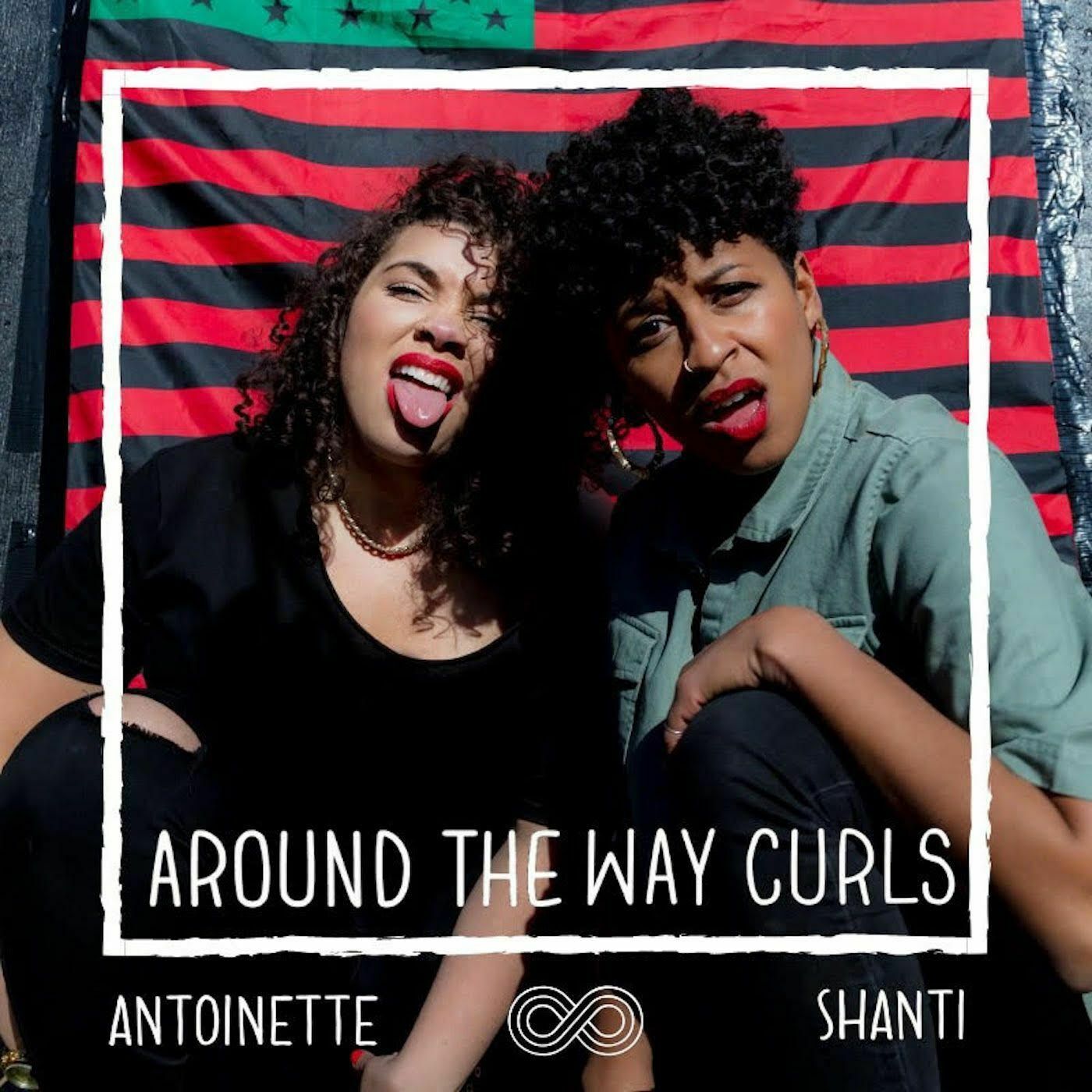
Around The Way Curls
Antoinette Lee & Shanti Mayers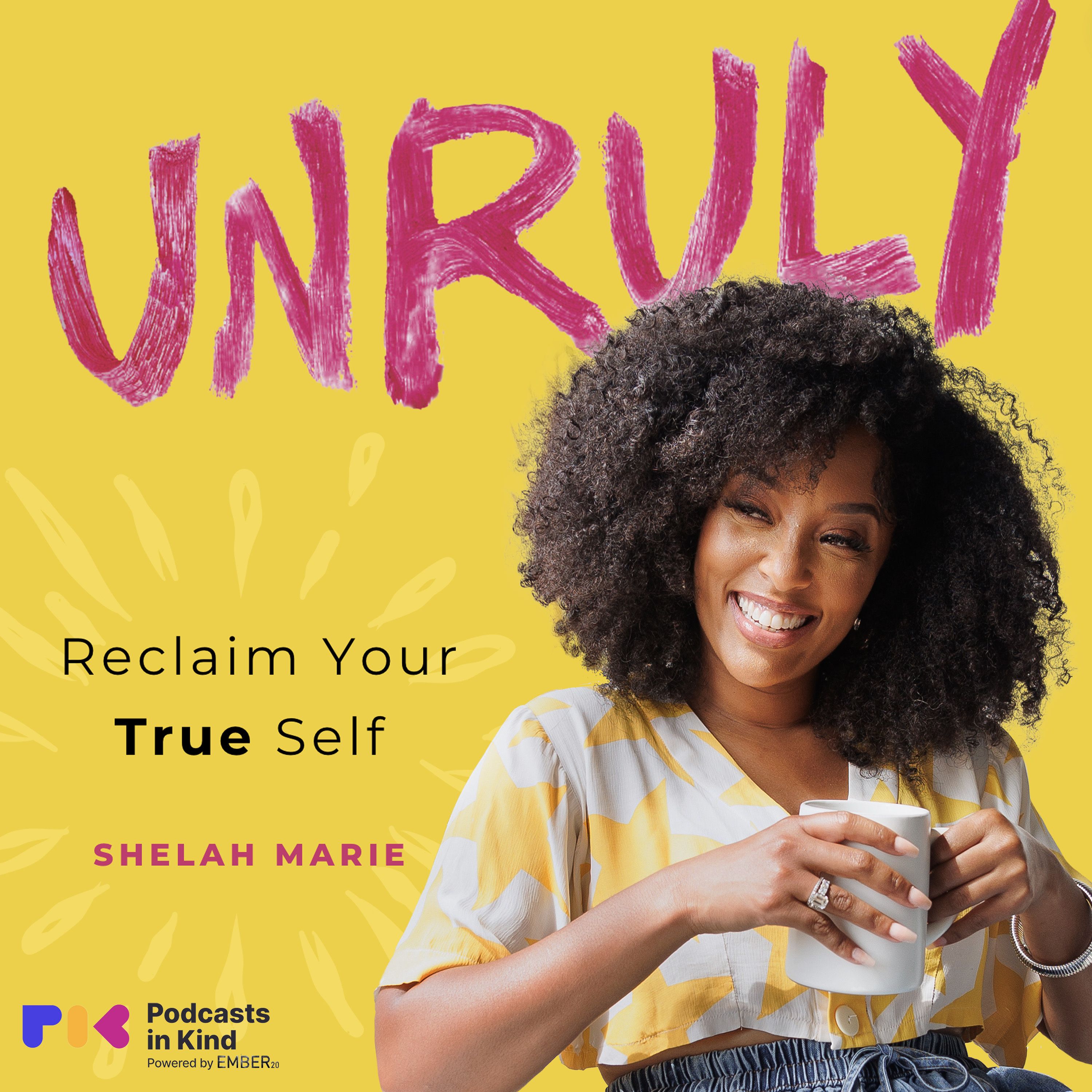
UNRULY WITH SHELAH MARIE
UNRULY WITH SHELAH MARIE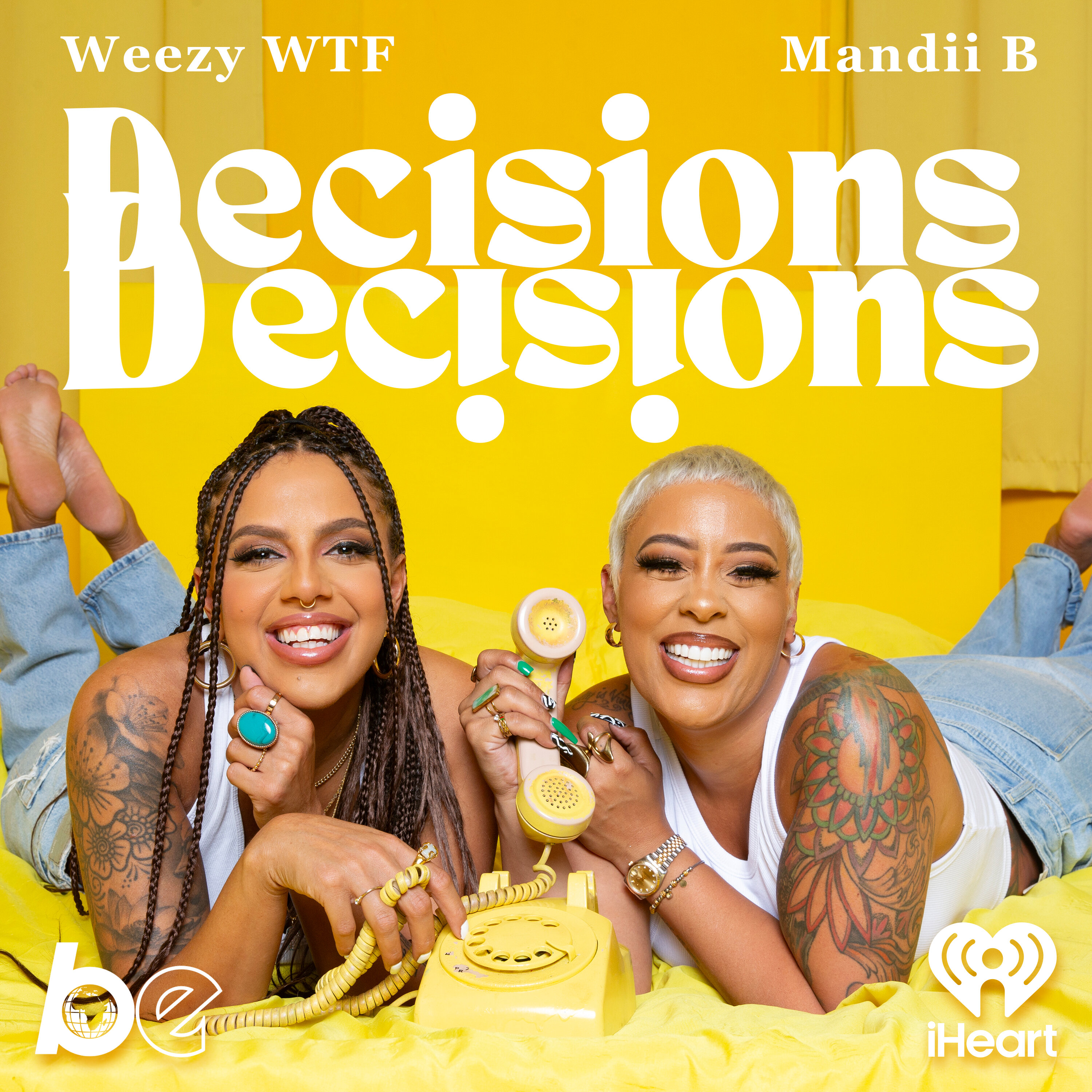
Decisions, Decisions
The Black Effect and iHeartPodcasts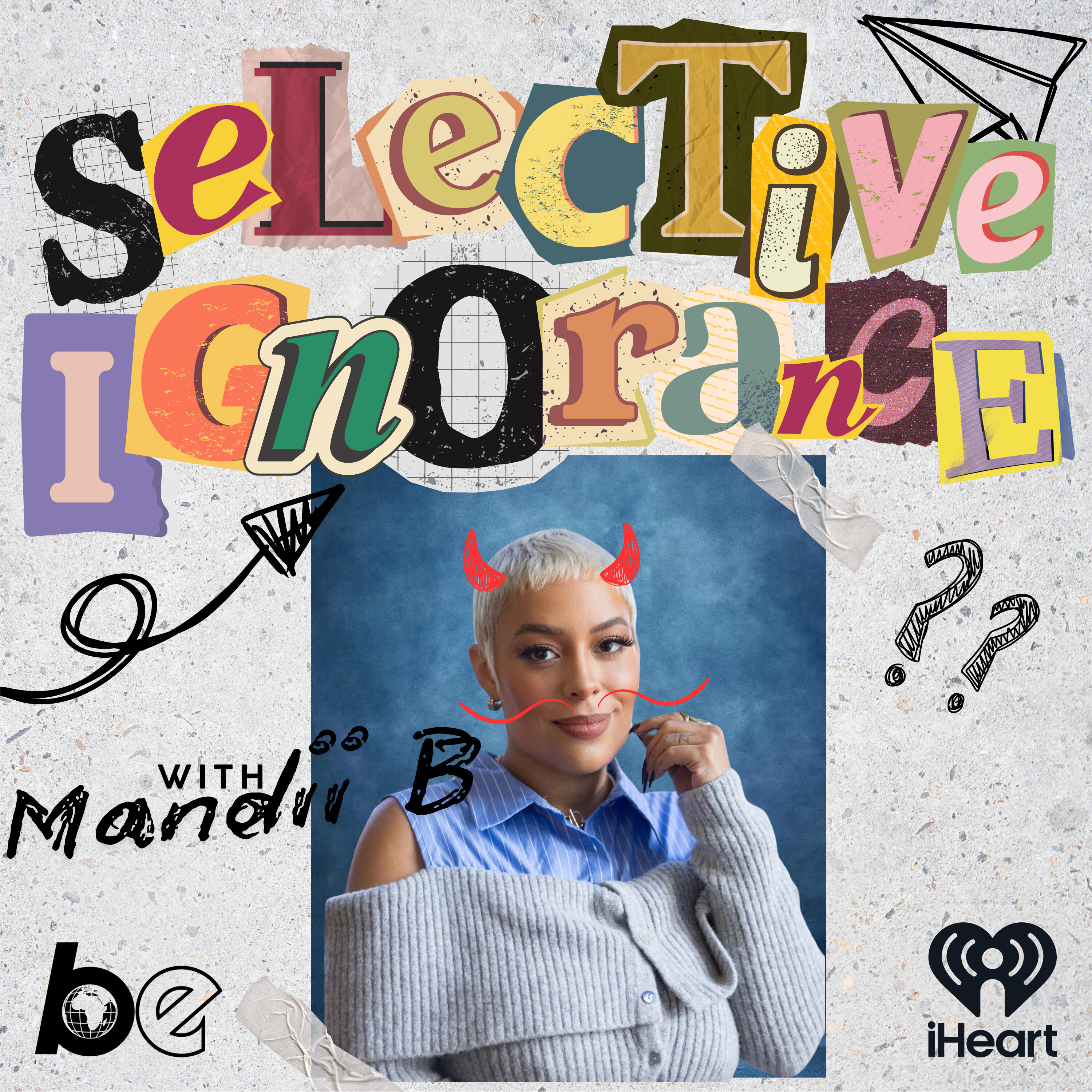
Selective Ignorance with Mandii B
The Black Effect and iHeartPodcasts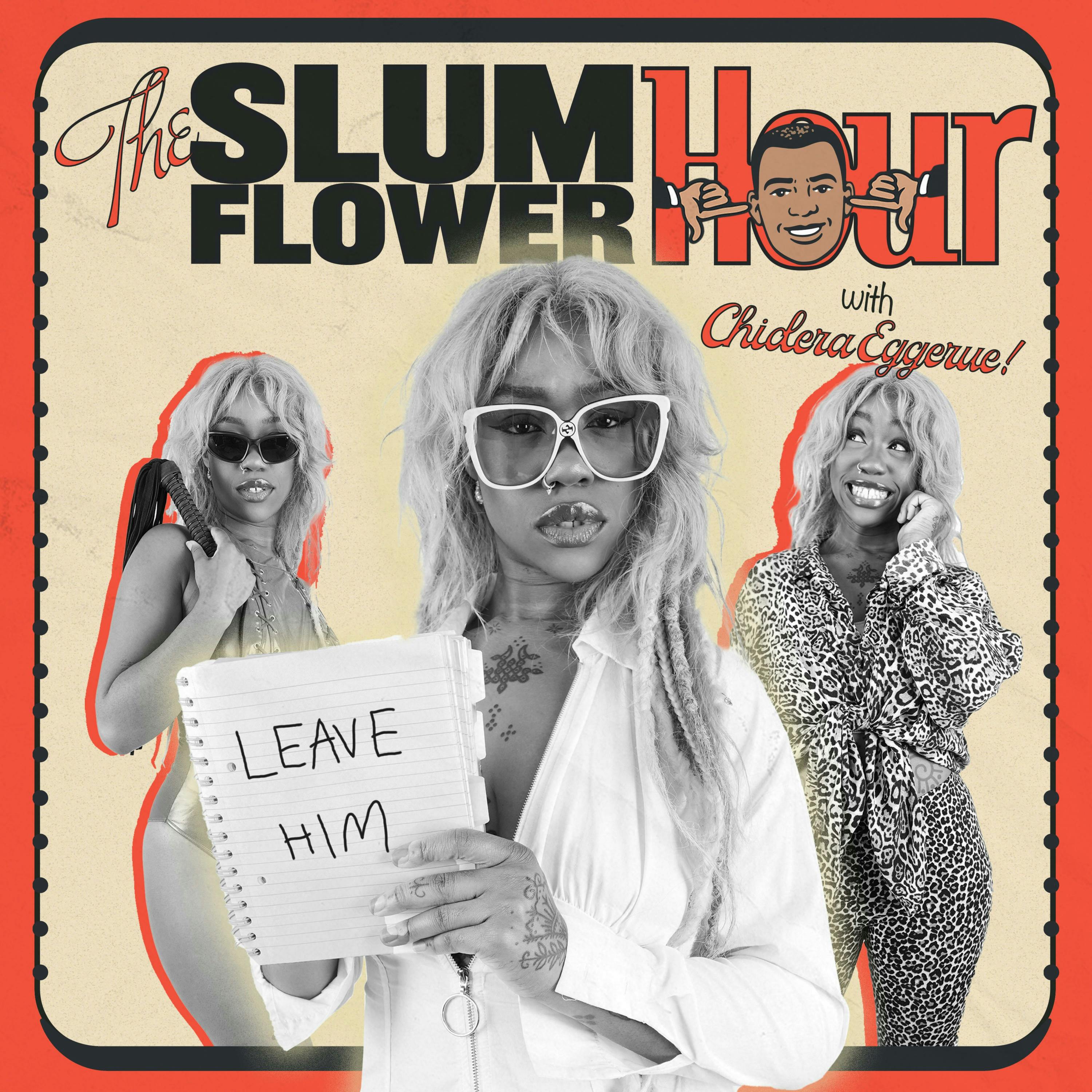
The Slumflower Hour
Chidera Eggerue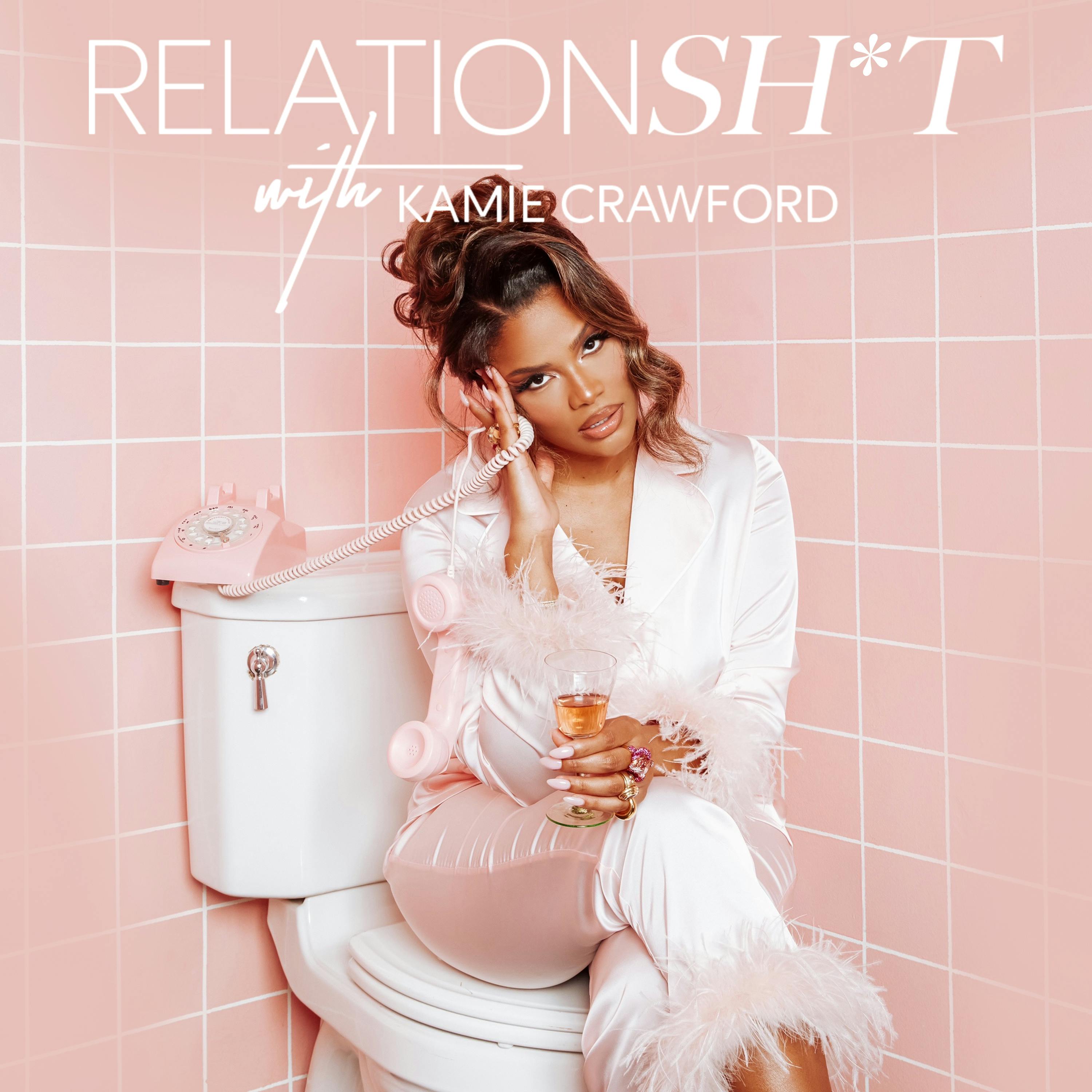
Relationsh*t with Kamie Crawford
Kamie Crawford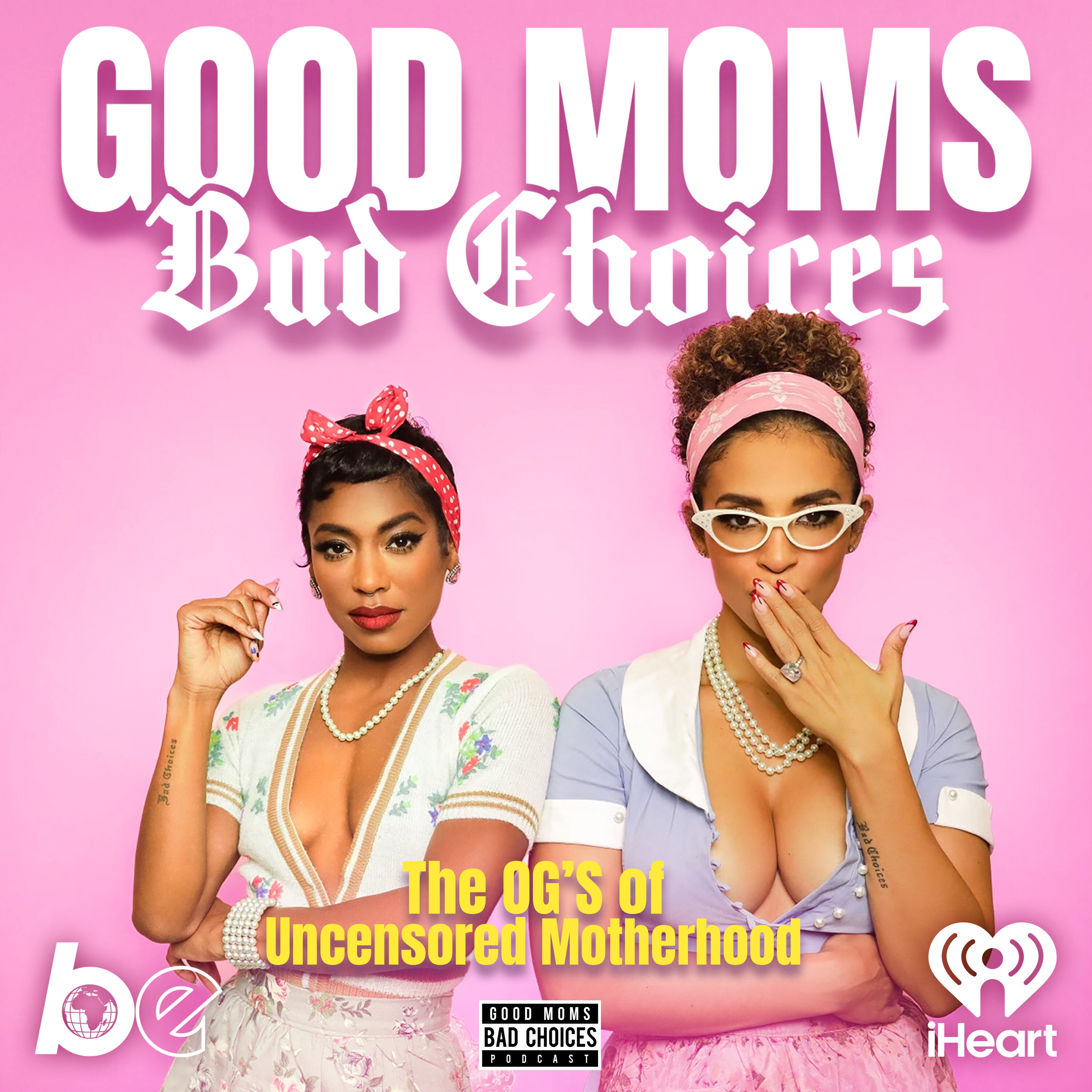
Good Moms Bad Choices
The Black Effect and iHeartPodcasts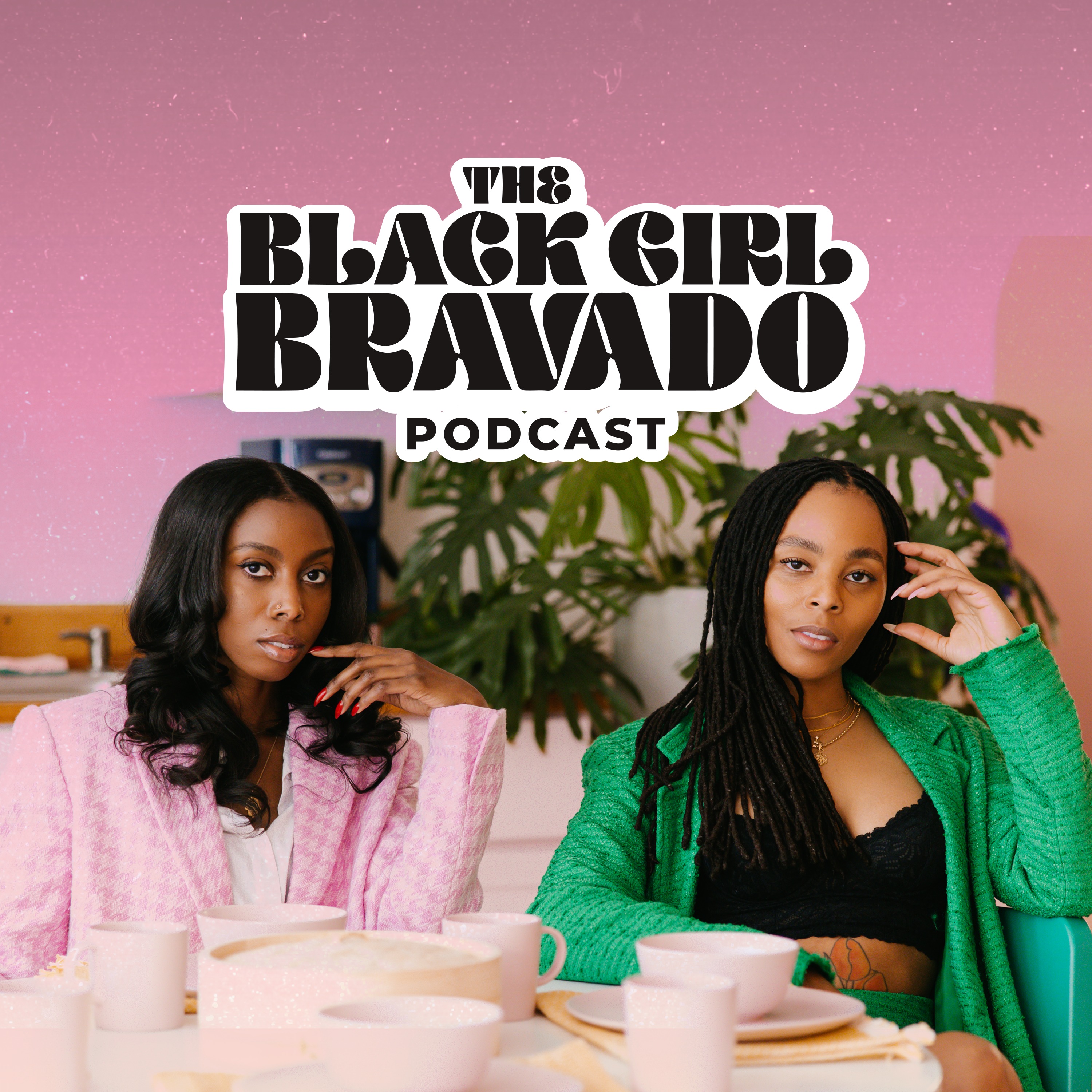
The Black Girl Bravado
Black Girl Bravado
Slay Girl Slay
Ashley Leggs
She's So Lucky
She's So Lucky
SpeakEZ Black Renaissance Podcast
Qadry Harris, M. Div.
Bobo's Void
Bobo, Donavon and MangoUpstream
Upstream
Caribbean Mystics
SpectreVision Radio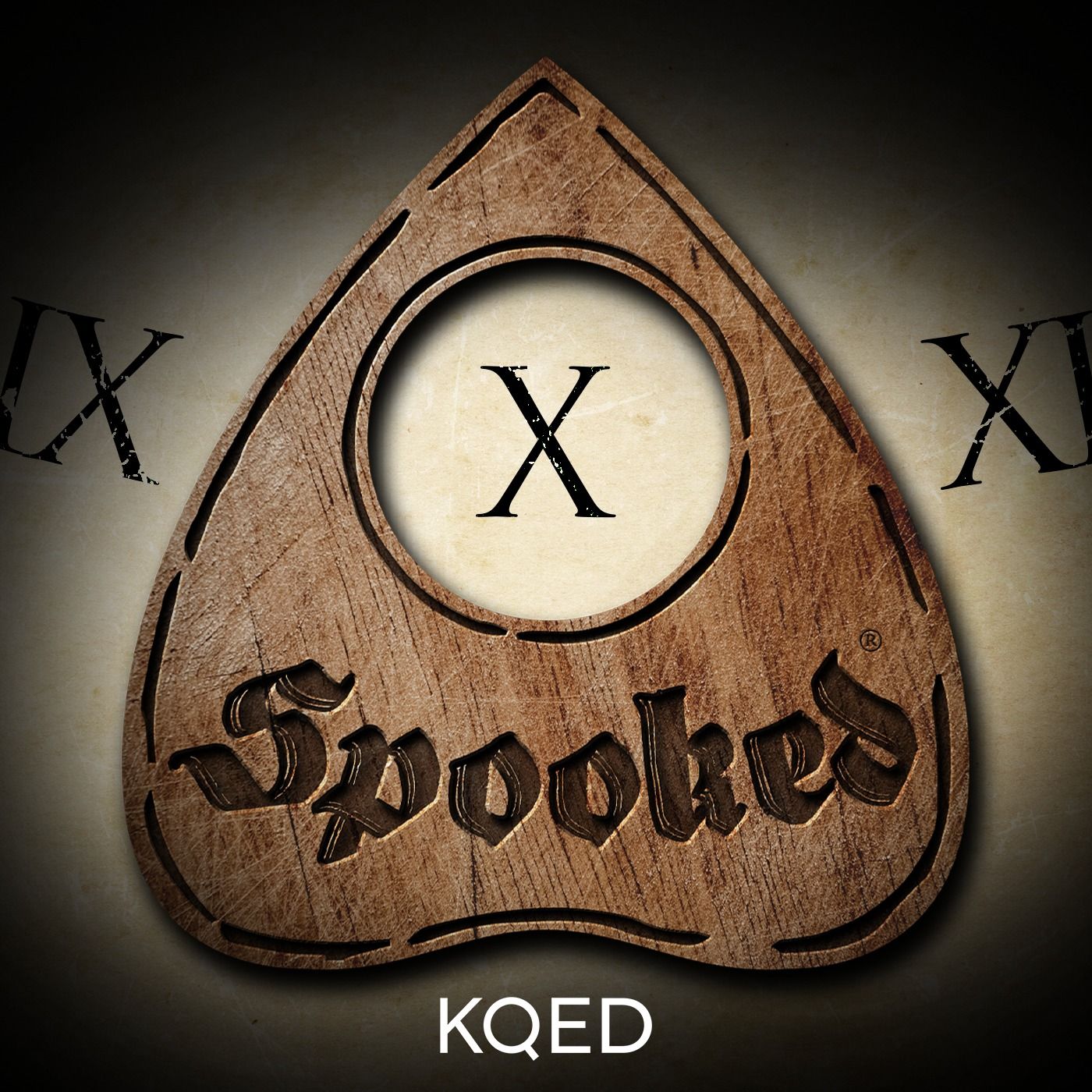
Spooked
KQED and Snap Studios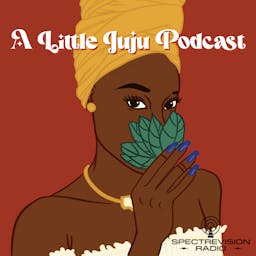
A Little Juju Podcast
SpectreVision Radio
Magic in the United States
Magic in the United States
Sensual Faith Podcast with Lyvonne Briggs
Lyvonne Briggs
Our Ancestors Were Messy
Nichole Hill
CultureCon Uncut
Spotify Studios
Hold For Maintenance
Hold For Maintenance

